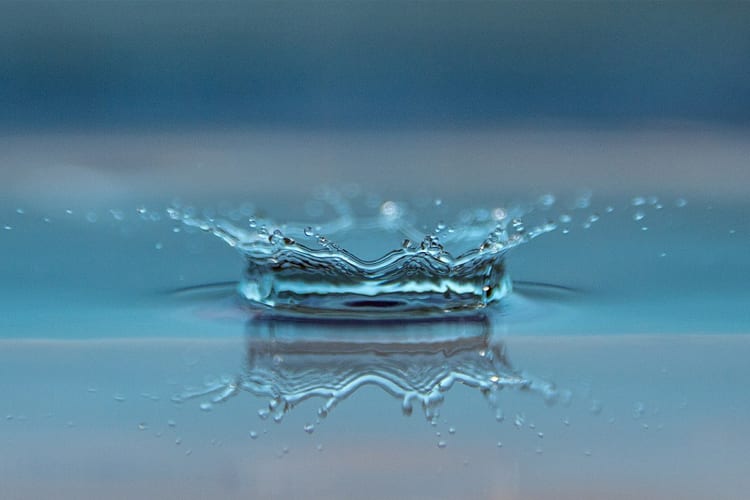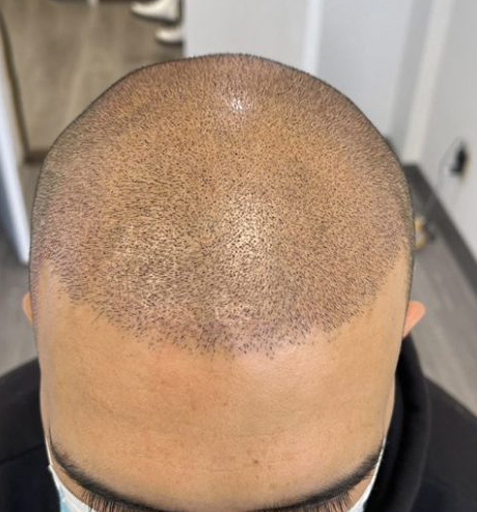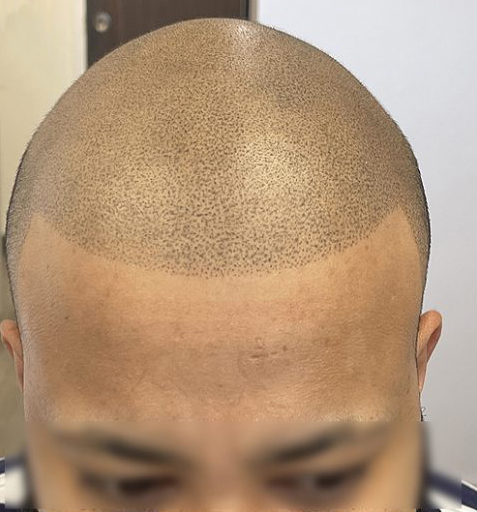
Table of Contents
DOES CHANGE IN WATER QUALITY CAUSE HAIR LOSS?
Water quality has a big impact on your hair health. The water you use to wash your hair can either help it stay strong and shiny or cause damage. Hard water, chlorine, and pollutants can harm your hair. These factors can cause hair to become dry, brittle, and more prone to breakage.
It is important to recognize the signs of hair damage caused by poor water quality. Identifying these signs early can help you take action before the damage becomes worse. Understanding the link between water quality and hair health helps you make better choices for your hair care routine.
Table of Contents
Water quality refers to the condition of the water you use every day. Water can contain minerals, chemicals, and other substances that affect its quality. Hard water has high levels of minerals, such as calcium and magnesium. Soft water has fewer minerals and is gentler on your hair and skin. Chlorinated water, commonly found in swimming pools, can also damage your hair.
Poor water quality can harm more than just your hair. It can also affect your skin and general health. Polluted water may contain harmful substances like heavy metals. These substances can irritate your scalp and weaken your hair over time. Clean and safe water is essential for healthy hair growth and maintenance.
Hard water can leave mineral buildup on your hair and scalp. This buildup makes your hair look dull and feel rough. Over time, hair becomes more prone to breakage and tangling. The minerals can also block hair follicles, which makes it harder for hair to grow. In the long run, this can lead to thinning hair.
Chlorinated water can similarly damage your hair. Chlorine strips your hair of its natural oils, which makes it dry and brittle. Swimming in chlorinated pools can cause hair to lose its softness. The chemicals in chlorine can also harm the hair shaft, leading to split ends and hair loss. These effects may take time to appear, but they become noticeable over time.
Dryness is one of the first signs of hair damage from poor water quality, which can also contribute to the causes of hair loss. You may notice that your hair becomes dull and lifeless. Breakage and excessive tangling can also be signs of damage from hard water buildup. If you experience these problems, your water quality may be the cause.
Your scalp may also show signs of irritation. It might become itchy or red. Buildup from minerals or chemicals in the water can also affect your scalp. These signs are clear indicators that your water is harming your hair and scalp. If you notice these changes, it is important to take steps to protect your hair.
You can take several steps to protect your hair from damage and hair loss. Installing a water softener or shower filter can significantly improve the quality of your water by reducing harmful minerals and chemicals that contribute to hair damage. Using clarifying shampoos can also help remove any buildup caused by hard water or chlorine.
Adding moisture to your hair is essential. Use deep conditioning treatments to restore softness and hydration. These treatments nourish dry hair and bring it back to life. You should also consider adding protective hair care products to your routine. These products help shield your hair from further water damage.
If you’re noticing persistent hair thinning or damage, exploring hair loss treatments could be an effective way to restore your hair’s health and prevent further loss.
Sometimes, hair damage from poor water quality can become severe. If you notice that your hair is thinning or you have persistent scalp problems, it may be time to consult a dermatologist. A professional can help determine whether your water quality is the cause of your hair issues. They can also recommend treatments to restore the health of your hair.
If you are unsure about the cause of your hair loss or scalp irritation, seeking professional help is a good option. A trichologist, a hair specialist, can offer expert advice. They can guide you in choosing the right products or treatments to protect your hair and prevent further damage.
Water quality affects your hair health more than you may realize. Poor water can lead to dry, brittle hair, and scalp irritation. Hard water’s minerals and the chemicals in chlorinated water can cause long-term damage. It is important to pay attention to the water you use and take steps to protect your hair.
Using water filters, softeners, and clarifying shampoos can help reduce the effects of poor water quality. Restoring moisture and choosing the right hair care products can repair damage. It is important to pay attention to the signs your hair gives you. Taking action early can prevent further harm and keep your hair healthy.
Have you noticed any hair problems linked to water quality? Share your experiences in the comments below. If this article is helpful, follow us for more hair care tips and advice.
Can hard water cause hair loss?
Yes, hard water can contribute to hair loss. The minerals in hard water can build up on the scalp and hair, leading to dryness, breakage, and even clogged hair follicles. Over time, this can weaken hair and slow down growth, potentially causing hair thinning.
How can I tell if my water quality is affecting my hair?
If your hair feels dry, rough, or looks dull, it may be a sign that the water quality is affecting it. Other signs include increased tangling, hair breakage, or scalp irritation like itching or redness. If you notice these symptoms, your water quality might be the cause.
What is the best way to protect my hair from poor water quality?
You can protect your hair by using a shower filter or water softener to reduce minerals like calcium and magnesium. You can also use clarifying shampoos to remove buildup and deep conditioning treatments to restore moisture. These steps can help maintain healthy hair despite poor water quality.
Does chlorinated water damage hair?
Yes, chlorinated water can damage hair. Chlorine strips away the natural oils in your hair, leaving it dry, brittle, and prone to breakage. If you swim in chlorinated pools frequently, it’s essential to use a protective conditioner or a swim cap to minimize damage.
When should I see a professional about hair damage?
If you notice persistent hair thinning, severe breakage, or scalp irritation that doesn’t improve with home treatments, it’s a good idea to see a dermatologist or trichologist. They can help identify the cause of the damage and recommend professional treatments or products.






© 2024 HAIRTATTOO.CA | Scalp Micropigmentation & Trichology Centre
